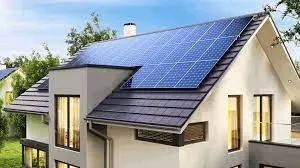
Benefits of Going Solar
The Top 7 Benefits of Going Solar for Homeowners
As energy costs rise and climate change remains a pressing global concern, more homeowners are exploring alternative energy solutions, and solar power stands out as one of the most popular options. Not only does switching to solar power help the environment, but it can also offer long-term savings, increase property value, and even provide energy independence. Here, we'll break down the top benefits of going solar for homeowners.
1. Significant Savings on Electricity Bills
One of the most immediate and tangible benefits of solar power is the potential to reduce your electricity bills significantly. When you install solar panels, you generate your own electricity, allowing you to rely less on your utility provider. In many cases, solar systems can cover a substantial portion, if not all, of a household's energy needs, depending on the system's size and the home's energy consumption.
Over time, the money saved on monthly electricity bills can offset the cost of installation, with most homeowners seeing a return on investment within 5-10 years. Plus, since solar panels typically last 25-30 years or more, the long-term savings can be substantial.
2. Increase in Property Value
Studies show that homes with solar panel installations tend to have higher property values and can sell faster than comparable homes without solar. The added value comes from the appeal of reduced energy costs, making a home with solar more attractive to potential buyers. In fact, research has shown that homes with solar panels sell for a premium, often increasing property value by up to 4% or more.
This increased value is a significant advantage, especially if you plan to sell your home in the future. Not only will you enjoy the energy savings while you live there, but you can also see a higher resale value if you decide to move.
3. Reduced Environmental Impact
Solar power is a clean, renewable energy source that produces no harmful emissions or pollutants. By going solar, you reduce your home's carbon footprint, contributing to a more sustainable future. Traditional electricity generation relies heavily on fossil fuels, which release carbon dioxide and other greenhouse gases into the atmosphere, contributing to global warming and air pollution.
Solar power, on the other hand, generates clean energy, allowing you to power your home without contributing to these environmental issues. For environmentally conscious homeowners, going solar is a great way to make a positive impact on the planet.
4. Energy Independence
When you produce your own power through solar, you’re less reliant on your utility company, which means you’re less affected by fluctuations in energy prices. Many homeowners also choose to pair their solar system with a home battery, like the Tesla Powerwall or LG Chem RESU, which stores excess energy generated by the panels. This stored energy can then be used during peak usage times or even in case of a power outage.
With solar and battery storage, homeowners can achieve a greater level of energy independence, ensuring they have access to power even when the grid goes down.
5. Solar Tax Incentives and Rebates
To encourage the adoption of renewable energy, governments at both the federal and state levels offer tax incentives, rebates, and credits for solar installations. The Federal Investment Tax Credit (ITC) allows homeowners to deduct a significant percentage of the cost of installing a solar system from their federal taxes. Many states also have additional incentives, such as tax credits, rebates, and even performance-based incentives (PBIs).
These incentives can reduce the overall cost of going solar, making it more accessible and affordable for homeowners. Be sure to check for local and state incentives to maximize the financial benefits.
6. Low Maintenance Costs
Solar panels are incredibly durable and require minimal maintenance. Since they have no moving parts, they are less likely to suffer from wear and tear. Most solar systems simply need periodic cleaning to ensure maximum efficiency, and many installers offer maintenance plans to help keep your system in top shape.
Additionally, many solar panel manufacturers offer warranties ranging from 10 to 25 years, ensuring that you’re covered if anything goes wrong. With low maintenance requirements, the ongoing costs of owning a solar system are minimal.
7. Community and Environmental Leadership
By going solar, you set an example for others in your community, inspiring neighbors, friends, and family to consider renewable energy as a viable option. This choice supports the growth of a more sustainable energy infrastructure and encourages further investment in clean energy technologies.
Many communities and local governments are working towards increasing the percentage of renewable energy used, and by installing solar panels, you’re contributing to this goal, actively participating in a global shift toward more responsible energy consumption.
Final Thoughts
Going solar is not only a smart financial decision but also a way to take control of your energy future and make a positive impact on the environment. With potential savings on electricity, increased property value, and various tax incentives, homeowners who make the switch to solar enjoy a range of benefits. Solar power is an investment in both your home and the planet, making it a compelling option for anyone looking to reduce their energy costs and carbon footprint. Click here to get a free quote.
© Copyright SolarEnergyLease.Com, LLC. DBA National Lending Source. All Rights Reserved.
P.O. Box 45499 Phoenix, AZ. 85064